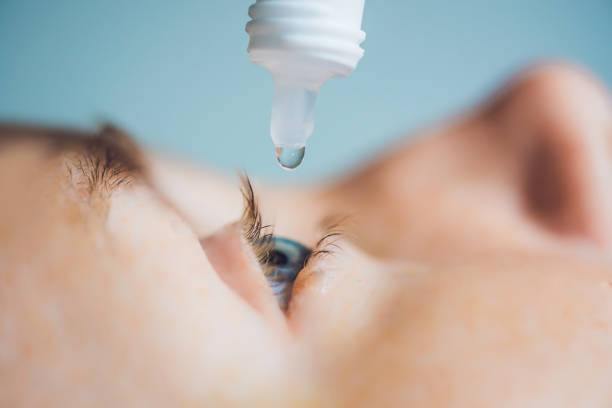Since Sjögren’s affects each person differently, a personalized treatment plan is typically developed with your healthcare specialist(s). Overall, many people manage the dry eye and dry mouth of Sjögren’s disease by using over-the-counter eye drops and sipping water more frequently. However, in some cases treatment consists of lifestyle changes. These changes help certain symptoms such as fatigue and gastrointestinal reflux. Therefore Sjögreen’s patients are often managed with a combination of strategies. Most patients will need prescription medications at some point in their disease course to help control their disease and reduce the potential for complications.

Surgery
A minor procedure to seal the tear ducts that drain tears from the eyes. (punctal occlusion) As a result, it might help relieve your dry eyes. For example, collagen or silicone plugs are inserted into the ducts to help preserve your tears.
Self-Care
Artificial tears moisten eyes to provide soothing relief.
Medications
These include a steroid, a nonsteroidal anti-inflammatory drug, a saliva-producing stimulator, and an immunosuppressant drug. Therefore, depending on your symptoms, your doctor might suggest medications that:
Decrease Eye Inflammation
Prescription eye drops such as cyclosporine (Restasis) or lifitegrast (Xiidra) may be recommended.
Increase Production
of Saliva
Drugs such as pilocarpine (Salagen) and cevimeline (Evoxac) can increase the production of saliva, and sometimes tears.
Address Specific Complications
In short, if you develop arthritis symptoms, nonsteroidal anti-inflammatory drugs (NSAIDs) or other arthritis medications may be beneficial. Similarly, yeast infections in the mouth should be treated with antifungal medications.
Treat Systemwide Symptoms
Hydroxychloroquine (Plaquenil) is often helpful in treating Sjögren’s syndrome. Drugs that suppress the immune system, such as methotrexate (Trexall), also might be prescribed.
Specialists:
Rheumatologist
Specializes in arthritis and other rheumatic diseases.
Primary Care Provider (PCP)
Prevents, diagnoses, and treats diseases
Dentist
Specializes in diseases of the oral cavity, especially the teeth.
Ophthalmologist:
Specializes in eye disease.